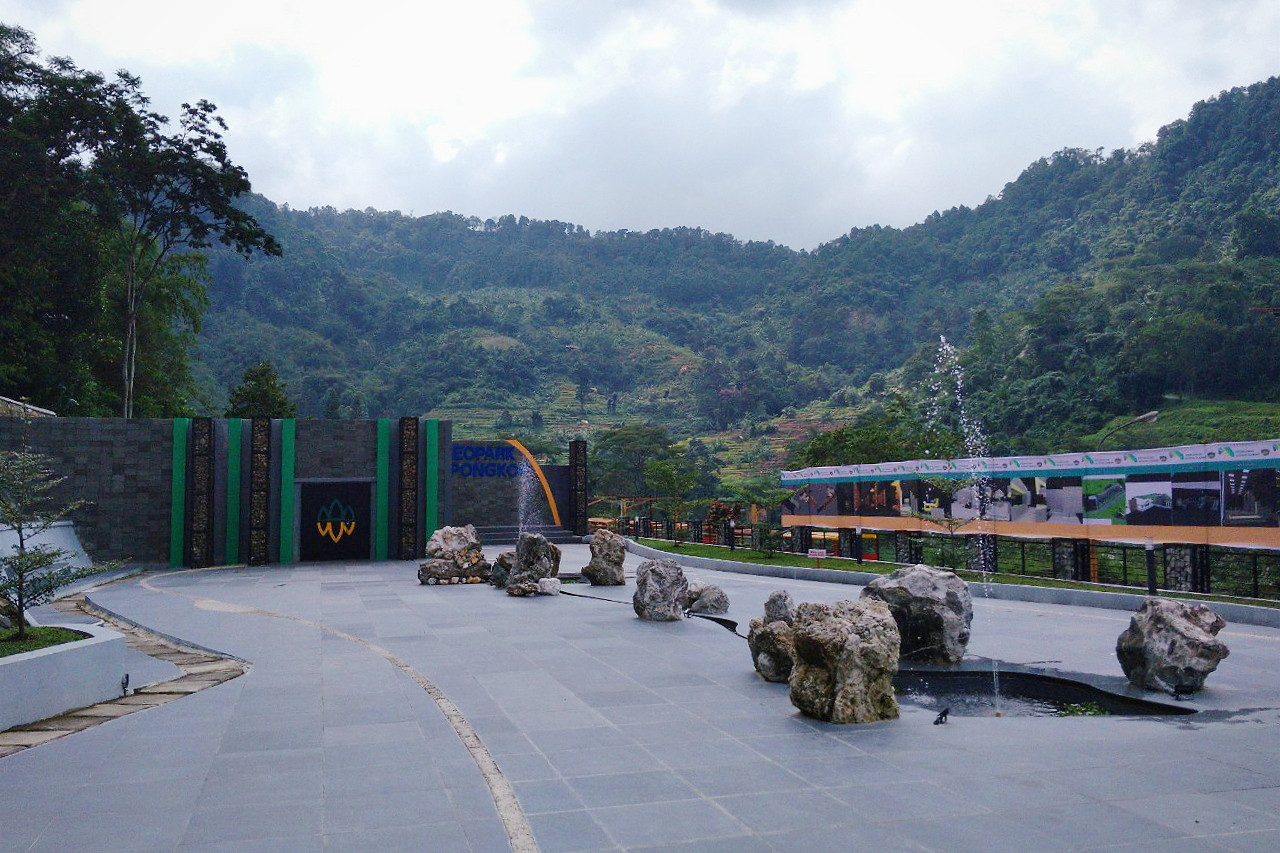Popular Reads
Top Results
Can't find what you're looking for?
View all search resultsPopular Reads
Top Results
Can't find what you're looking for?
View all search resultsPongkor mine, first underground museum in Indonesia
Change text size
Gift Premium Articles
to Anyone
Pongkor Geopark, which is located in the gold-mining area of its namesake, is now a star tourism attraction in Bogor regency.
Covering an area of 135 hectares, its location covers 15 subdistricts, namely Nanggung, Cigudeg, Tenjo, Leuwiliang, Tenjolaya, Leuwisadeng, Ciampea, Ciseeng, Jasinga, Pamijahan, Parung, Rumpin, Sukajaya, Tamansari and Cibungbulang,
Among the natural attractions within the Pongkor site are Mount Peyek, sacred inscriptions on Mt. Munara, Curug Seribu waterfall, Cibalay site complex, Van Motman mausoleum, Urug village and the newly built underground mining museum Pongkor presented by state-owned diversified miner PT Aneka Tambang (Antam).
Bogor Regent Nurhayanti said the 15 subdistricts were developed at Pongkor Geopark because they have outstanding culture and biodiversity potential. They are also strategically located in the conservation area of Mt. Halimun Salak National Park (TNGHS).
“The geopark area hosts Pongkor gold mine, so that is why we choose the theme ‘Evolution of Magmatic Arcs’, in association with mineralization of Pongkor-type precious metal (gold),” added Nurhayanti.
Moreover, the development concept of Pongkor Geopark maintains the existing sites and geosite, therefore it is expected to facilitate education on the history and structure of the earth. With all these potentials, Nurhayanti is confident that Pongkor Geopark would be able to become a desired destination attracting Indonesian and foreign visitors alike.
The development is also set to involve the government, universities and entrepreneurs, aiming for sustainability, a positive impact on local economic growth and improving the welfare of residents in the surrounding area.
Nurhayanti further hopes that Pongkor Geopark would be more accessible within the Jabodetabek (Greater Jakarta) context, apart from its accessibility through the existing Bogor-Jasinga route that requires a longer traveling time from the capital.
“A new shortcut from South Tangerang to Pongkor Geopark is needed, whether in the form of a toll road or an arterial road. We also hope that the geopark will be reached by rail through the Bogor-Lebak line,” said Nurhayanti.
She added that West Java’s governor should consider planning and budgeting for the development of the Ciletuh and Pongkor geoparks as twin geoparks, which is 30 kilometers apart, as the star destination of West Java.
Read also: Banyuwangi regency declared national geopark area
Pongkor gold exploration is coming to an end
The general manager of PT Antam UBPE Pongkor, I Made Astana, said the Pongkor Geopark gold mine museum was one of its post-mining programs, due to the gold-mining license expiring in 2021.
“According to the post-mining documents already issued, we would fulfill our obligations regarding previous (gold-mining) activities. There would be reclamations and the restoration of mined areas,” said Astana.
In order to sustain local residents’ welfare post-mining, PT Antam UBPE Pongkor has established underground mining tourism (mining museum), which is a first in Indonesia.
“The Pongkor mining museum hasn’t been launched yet, but we already have many visitors. There are around 500 to 1,000 of them a month,” said Astana. (mut)







